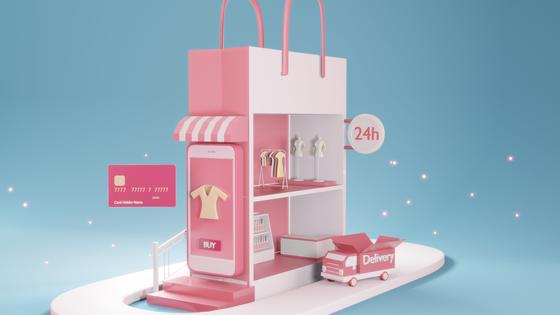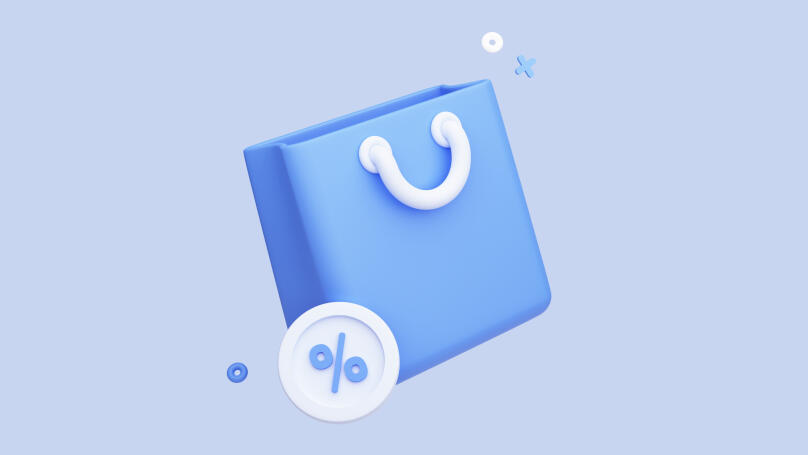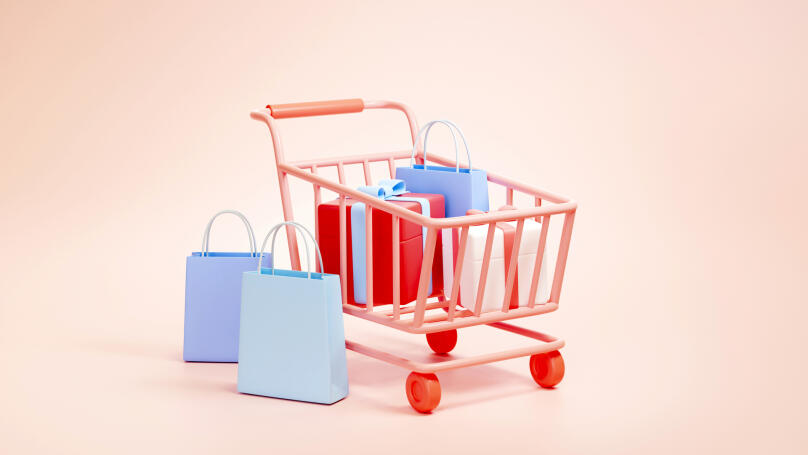How to stop impulsive shopping before the New Year? Three-minute summary
Impulse purchases are the engine of all industries. About 60% of Russians make impulsive buys, but only 20% regret their purchases.

Nevertheless, everyone spends money on a momentary Wishlist. Likewise, so do you. So how do you stop spending a fortune on gifts, home decorations, and trinkets? Is it even necessary to abandon impulsive buying at all – do we not work so we can spend our money? Let me explain.
Is impulse buying bad?
Sometimes. expenses are unplanned and, likewise, harm your budget. Although not to be confused with impulsive buying - it is natural and happens to everyone. Impulse buying is a dreadful thing when it hurts you financially or psychologically.
Most commonly, impulsive buying can be a result of the consequence of clever marketing tools. Great advertising attracts your attention and promises to solve all your problems in just a few minutes. How could you not believe it if the "problems" you are being affected by are agitating you? The right product placement of goods on a shop's shelf reminds you that you can immediately banish the "problems" by purchasing that product. Discounts and promotions encourage you to spend money; if it is a bargain, you take it, and you will regret it later! This thinking, combined with psychological pressure at seeing something useful, tasty, and nice, "stops" any logic that prevents you from buying it.
Two factors can help you distinguish an impulse buy from a "normal" one: how it is made and what emotions it produces. Most often, the spontaneous spending of money brings happiness to the moment. Still, it can cause anxiety and disappointment after a while. This is because it does not serve any financial purpose but only, for example, to lift your mood and reward the shopper for something (the buyer is sure of this).
What does impulse buying look like?

Like something that deprives you of money for much-needed items, for example, you ask yourself: "So what if I buy this? I spend my money? Why else would I earn it?" Then you buy a product or service and have to pay for your food for the week before payday using a credit card, thinking you will eventually pay back. Or you can convince yourself that you are buying something for a loved one, a friend, a pet, for anyone, although not for yourself. Or you could buy something because it would be extremely useful. However, will it be beneficial? Probably not, because you will not even pick it up again after you buy it. So, it'll sit on a shelf, reminding you that you wasted money on something. Sometimes, you will begin using the item for a different purpose, and its meaning will completely disappear.
So, can you not enjoy yourself at all?
No, why not. Suppose you abandon buying what you want and being spontaneous but not impulsive and buying meaningless purchases. In that case, the quality of your life will suffer. It is not our goal to make you a minimalist, a puritan, and an opponent of consumerism (although uncontrolled consumption is still not incredibly positive.) You must properly analyze your need for buying something and think it through before you buy it.
Okay, how do you stop impulsive buying, then?

First, admit that you are buying things on impulse, and this habit hurts your wallet. It is a psychological problem, so the first step towards eliminating it is to be realistic and accept reality. After that, you can break loose and buy something you do not necessarily need. Yes, you believe the marketing promises time after time. Yes, your body releases dopamine when you buy something new. Do not criticize yourself for this; be careful how you phrase it. Do not say to yourself, "How could you spend money again!" but instead, ”Have you spent the money? Let's save a bit more; everything is fine." And certainly not "Again, you are living beyond your means," but instead, "Today was like this, but I am happy, and tomorrow I will be more careful with my spending."
You also need to identify your triggers. What exactly encourages you to buy something? What behaviour, emotions, or events are causing it? You can write down your triggers on a piece of paper - this way, it will be easier for you to analyze them shortly. After your triggers are established, you can have several practice rounds. Then, track the impact of your triggers on your life and the purchases you make. Finally, ask yourself if you really want to buy something or are driven by one of your triggers.
Mini Tips for Impulse Buyers
-
Direct the energy that you put into buying things into yourself: exercise, draw, dance, make crafts, in general, switch your attention any way you can.
-
Have a snack before going to the grocery store, and wear a nice outfit if you are going to buy a new dress.
-
Consciously protect yourself from shopping in places that cause you to make impulsive purchases.
-
Create a budget for impulse shopping and keep within it. Then, imagine how hard it will be to get money for your basic needs after the purchase.
-
Do not keep substantial amounts of money on your bank card or account. Save with deposits that you cannot easily withdraw. Or you can remove it, but with a loss of interest. You will find it difficult to give up passive income.
Keep practising, and eventually, impulsive buying will disappear from your life. So, take it seriously, treat yourself with care and be calm, repeat the exercise daily, and do not berate yourself when you fail to abandon your impulsiveness. To achieve success, you need to stay on track and support yourself.
Share this with your friends via:
Latest News

In the UK, £23 million has been allocated for the expansion of the EdTech Testbed program — pilots of educational technologies in schools and colleges.

In the US, Tuskegee University announced the launch of Tuskegee University Global Campus (TUGC) — a new online platform for distance learning.

A significant stage in the development of the alternative education system has begun in West Northamptonshire in the UK: the County Council is actively calling on parents, guardians, and trustees to participate in shaping the future of this key area.

Outwoods Primary School in Atherstone, Warwickshire, having experienced deep sadness after the loss of their famous cat, Silla, has found solace in a new pet – a Maine Coon named Aloysius O’Hara.

In modern universities, artificial intelligence, and in particular ChatGPT, is rapidly transforming from a controversial tool into a full-fledged student assistant.












 Spring skills audit: what to remove, strengthen, and “sow” in learning
Spring skills audit: what to remove, strengthen, and “sow” in learning
 9 Career Mistakes Young Professionals Make
9 Career Mistakes Young Professionals Make
 £23 million allocated for the expansion of EdTech Testbed in the UK
£23 million allocated for the expansion of EdTech Testbed in the UK
 Test: How Psychologically Mature Are You? Check Your Inner Foundation.
Test: How Psychologically Mature Are You? Check Your Inner Foundation.
 Test. Check Your Social Media Dependency Level!
Test. Check Your Social Media Dependency Level!
 Test: What Business is Right For You?
Test: What Business is Right For You?
